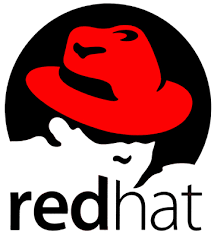Linux Containers
See the following -
Alex Polvi Explains CoreOS
A couple of months ago we interviewed Solomon Hykes about Docker, which is a way to build and manage Linux Containers with a lot of nice features. The next question was: if the full-stack can be provided by a Docker image and everything can be Dockerized, what is the minimum OS we need to run Docker images? Read More »
- Login to post comments
Red Hat Unleashes the Power of Linux Containers with Industry’s Broadest Solution Set
 Red Hat, Inc., the world's leading provider of open source solutions, today announced the availability of the IT industry’s most comprehensive set of enterprise-grade Linux container solutions. Red Hat’s container portfolio spans nearly every application delivery need, from free development tools to a comprehensive container platform that integrates management, Platform-as-a-Service (PaaS) and Containers-as-a-Service (CaaS). Addressing modernization of existing IT investments and innovation alike, Red Hat now enables customers to better leverage the full benefits of containerization with more secure, portable and consistent container-based solutions, supporting key open standards such as the Open Container Initiative (OCI) container format and Kubernetes orchestration...
Red Hat, Inc., the world's leading provider of open source solutions, today announced the availability of the IT industry’s most comprehensive set of enterprise-grade Linux container solutions. Red Hat’s container portfolio spans nearly every application delivery need, from free development tools to a comprehensive container platform that integrates management, Platform-as-a-Service (PaaS) and Containers-as-a-Service (CaaS). Addressing modernization of existing IT investments and innovation alike, Red Hat now enables customers to better leverage the full benefits of containerization with more secure, portable and consistent container-based solutions, supporting key open standards such as the Open Container Initiative (OCI) container format and Kubernetes orchestration...
- Login to post comments
Why Data Scientists Love Kubernetes
 Let's start with an uncontroversial point: Software developers and system operators love Kubernetes as a way to deploy and manage applications in Linux containers. Linux containers provide the foundation for reproducible builds and deployments, but Kubernetes and its ecosystem provide essential features that make containers great for running real applications...What you may not know is that Kubernetes also provides an unbeatable combination of features for working data scientists. The same features that streamline the software development workflow also support a data science workflow! To see why, let's first see what a data scientist's job looks like...
Let's start with an uncontroversial point: Software developers and system operators love Kubernetes as a way to deploy and manage applications in Linux containers. Linux containers provide the foundation for reproducible builds and deployments, but Kubernetes and its ecosystem provide essential features that make containers great for running real applications...What you may not know is that Kubernetes also provides an unbeatable combination of features for working data scientists. The same features that streamline the software development workflow also support a data science workflow! To see why, let's first see what a data scientist's job looks like...
- Login to post comments
Why Linux is Critical to Edge Computing
 Edge computing is a model of infrastructure design that places many "compute nodes" (a fancy word for a server) geographically closer to people who use them most frequently. It can be part of the open hybrid-cloud model, in which a centralized data center exists to do all the heavy lifting but is bolstered by smaller regional servers to perform high frequency-but usually less demanding-tasks. Because Linux is so important to cloud computing, it's an ideal technology to learn if you intend to manage or maintain modern IT systems.
Edge computing is a model of infrastructure design that places many "compute nodes" (a fancy word for a server) geographically closer to people who use them most frequently. It can be part of the open hybrid-cloud model, in which a centralized data center exists to do all the heavy lifting but is bolstered by smaller regional servers to perform high frequency-but usually less demanding-tasks. Because Linux is so important to cloud computing, it's an ideal technology to learn if you intend to manage or maintain modern IT systems.
- Login to post comments